Is diet and nutrition the secret to boosting our mental health? The answer is a resounding YES! When you know how to eat the right food for mental health, you can not only better cope with stress and anxiety, you can improve your overall mental well-being.
There are certain foods which can not only help to improve our mental health, it can also help to overcome mental health issues like anxiety and depression, along with therapy. Let us find out what foods can help you in your journey towards mental wellness.
Food and mood
The food we eat can play a significant role in improving our mood as nutrition and mental health are closely related.
Nutrient-dense foods that are rich in vitamins and minerals can help boost our mood, improve our cognitive function, and reduce the risk of mental health issues such as depression and anxiety.
Food affects our mood by regulating the chemicals in our brain. A balanced and nutrient-dense diet including complex carbs, protein, and omega-3s can reduce the risk of depression and other mental health issues.
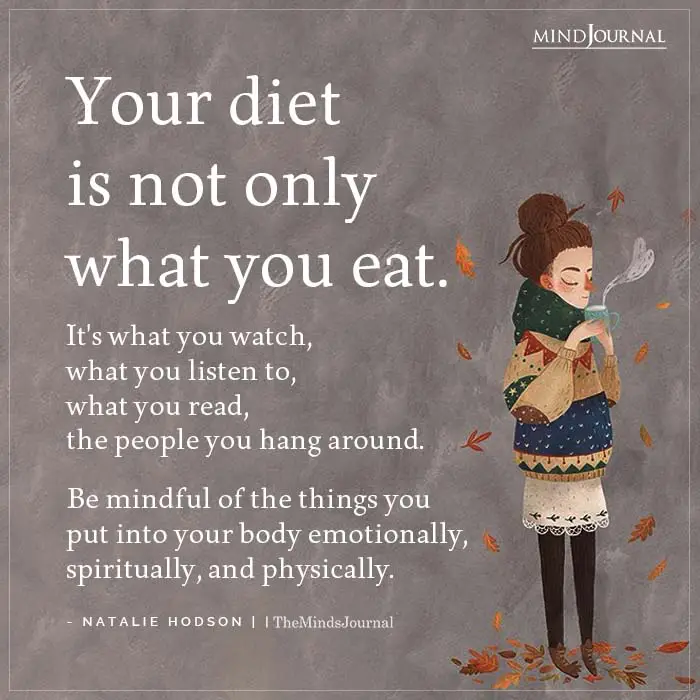
Processed and fast foods, on the other hand, have the opposite effect. While it can be tempting to chomp down a burger or a pizza or dig into a tub of ice-cream, when you are feeling down, fatty, sugary and calorie-rich foods can in fact be bad for our mental wellbeing.
This is why we need to add more wholesome foods in our diet to reap the benefits of a healthy mind and positive mood and emotions.
Related: 6 Ways Your Diet Contributes To Your Mental Health
10 Best foods that boost your mood
Want to improve your mood, emotions and mental health? Wondering which foods will improve mood? Here is a list of 10 amazing food for mental health improvement that that will help you feel better, happier and healthier –
1. Leafy greens
Leafy greens such as kale, spinach, and collard greens are rich in folate, a B-vitamin that has been shown to help reduce symptoms of depression.
Folate helps produce neurotransmitters such as serotonin, which are important for regulating mood. Eating leafy greens regularly can help ensure you are getting enough folate in your diet.
Studies show that green leafy vegetables “may promote higher levels of optimism and self-efficacy, as well as reduce the level of psychological distress, ambiguity,” and prevent depressive symptoms. This is surely one of the best foods to boost your mood.
2. Salmon
Salmon is rich in omega-3 fatty acids, which have been shown to help reduce symptoms of depression and anxiety. Omega-3s are important for brain health and can help regulate neurotransmitters that affect mood.
Eating salmon or other fatty fish two to three times a week can help increase your intake of omega-3s.
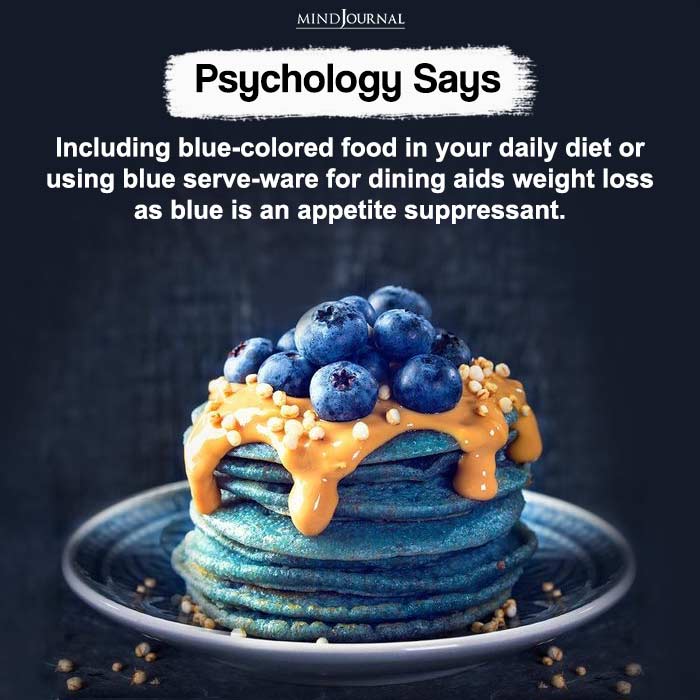
Researchers claim that “omega-3 fatty acids are proving to be very effective against the treatment of major depression disorder and other psychiatric disorders.”
3. Berries
Berries such as blueberries, strawberries, and raspberries are high in antioxidants, which can help reduce inflammation in the brain. Inflammation has been linked to depression and other mental health issues. Adding berries to your diet can help reduce inflammation and improve brain health.
Experts have found that consumption of flavonoids, a group of natural substances found in fruits like blueberries, can help to improve positive mood and emotions, and prevent dysphoria and depression, even in children.
4. Nuts
Nuts like cashews, walnuts and almonds are rich in fiber, protein and healthy fats that are good for your overall wellbeing.
They are also rich in magnesium, a mineral that has been shown to help reduce symptoms of depression. Adding a handful of nuts to your diet each day can help increase your intake of healthy fats and protein.
5. Whole grains
Whole grains such as brown rice, quinoa, and oats are high in fiber, which can help regulate blood sugar levels. Fluctuations in blood sugar levels can affect mood and energy levels. Eating whole grains regularly can help stabilize blood sugar levels and improve mood.
“Moderate consumption of whole grain foods was inversely associated with anxiety in women,” found a 2019 study.
Related: The Food Craving Guide: What You Crave For and What Your Body Actually Needs
6. Avocado
Avocados are rich in healthy fats, which can help improve brain function and reduce inflammation. It is also high in vitamin E, a nutrient that has been shown to help improve cognitive function. Adding avocado to your diet can help increase your intake of healthy fats and improve brain health.
7. Dark chocolate
Dark chocolate is high in antioxidants and can help reduce inflammation in the brain. It is also rich in magnesium and can help improve mood. Eating a small amount of dark chocolate each day can help improve brain health and reduce symptoms of depression.
Research shows that eating 85% cocoa dark chocolate can help to improve mood in healthy adults. This has to be one of the most delicious food for mental health.
8. Yogurt
Yogurt is high in probiotics, which are beneficial bacteria that live in the gut. Research has shown that probiotics can help improve mood and reduce symptoms of depression and anxiety. Eating yogurt regularly can help improve gut health and mental health.
9. Turmeric and curcumin
Turmeric is a spice that is high in antioxidants and has anti-inflammatory properties. In fact, consuming it on a regular basis can actually help to relieve symptoms of anxiety and depression. Adding turmeric to your diet can help reduce inflammation and improve mental health.
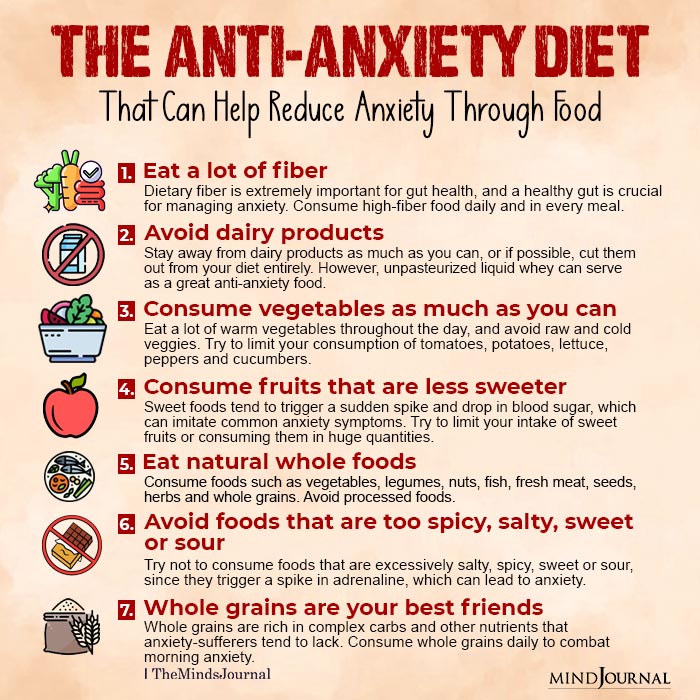
Curcumin, a phenolic compound which is the main active component in the spice turmeric, has antidepressant effects and is excellent for the treatment of depression. “Curcumin demonstrates neuroprotective action in Alzheimer’s disease, tardive dyskinesia, major depression, epilepsy, and other related neurodegenerative and neuropsychiatric disorders,” explains a study. This is one of the foods that help with mood.
10. Green Tea
Green tea is the most relaxing food for mental health. It is high in antioxidants and has been shown to help reduce symptoms of depression and anxiety.
It also contains L-theanine, an amino acid that can help reduce stress and improve cognitive function. Drinking green tea regularly can help improve mental health and reduce stress.
Researchers state that the daily consumption of green tea is beneficial to improving depressed mood. Further studies have found that “Dietary antioxidants such as green tea polyphenols or isoflavonoid intake have been negatively associated with depression or depressive symptoms.”
By making small changes to your diet and eating foods that boost your mood and energy, you can help boost your mood and mental health in a big way.
Related: The Baffling Connection Between Vegetarianism and Depression
Can food help to improve our mental health?
Yes, food and diet can have a significant impact on our mental health. Our brain requires nutrients to function properly, and a balanced and nutrient-dense diet can help improve brain function, regulate mood, and reduce the risk of mental health issues such as depression and anxiety.
But how does food affect your mental health?
This occurs due to the gut-brain connection as the brain has a direct and strong effect on our stomach & intestines and vice versa.
The gut is often referred to as the “second brain” because it contains millions of nerve cells that communicate with the brain via the vagus nerve. The bacteria in our gut also plays a crucial role in regulating our mood, behavior, and cognitive function.

Known as the gut-brain axis (GBA), it involves bidirectional communication between “the central and the enteric nervous system, linking emotional and cognitive centers of the brain with peripheral intestinal functions.”
Researchers have found our emotional and mental states can change with changes in the gut microbiome as there is promising evidence that shows the “role of the gut microbiome in modulating processes that regulate emotion in the human brain.”
Related: Top 10 Foods To Boost Your Brain Power and Memory
It has been observed that foods rich in omega-3 fatty acids and anti-inflammatory properties support a healthy microbiome in the gut, which directly affects our mood and mental wellbeing.
“A healthy dietary pattern can affect mental health and well-being through anti-inflammatory, antioxidant, neurogenesis, microbiome- and immune-modifying mechanisms,” states a 2021 study.
A diet that includes food for mental health such as fatty fish, leafy greens, whole grains, nuts, seeds, and fermented foods can help improve brain function, regulate mood, and reduce the risk of mental health issues.
While diet alone may not be a cure for mental health issues, it can play an important role in overall mental health and well-being.
Diet and brain chemistry
Eating a balanced and nutritious diet helps to regulate the chemicals in our brain that affect our mood, such as serotonin, dopamine, and norepinephrine.
For example, foods that are high in carbohydrates, such as pasta, bread, and potatoes, can temporarily boost mood by increasing the production of serotonin in the brain.
However, it’s important to choose complex carbohydrates, such as whole grains, rather than simple carbohydrates, such as refined sugar, which can cause a quick spike in blood sugar followed by a crash that can negatively affect mood.
Related: What Is Intermittent Fasting And How It Can Help You Lose Weight
Protein-rich food for mental health, such as meat, fish, beans, and nuts, contain amino acids that are used to produce neurotransmitters such as dopamine and norepinephrine, which help in regulating mood and mental health.
Diet which contains high amounts of fat and proteins can help to reduce risks of developing psychological disorders such as depression, anxiety and emotional distress. “Low carbohydrate along with high protein and fat intakes are associated with greater satiety, which might result in a better mood,” explains a 2019 study.
Foods that are high in omega-3 fatty acids, such as fatty fish, can also help regulate mood by reducing inflammation in the brain and increasing the production of serotonin.
Studies have shown that people who eat a diet high in omega-3s are less likely to experience depression and other mental health issues.
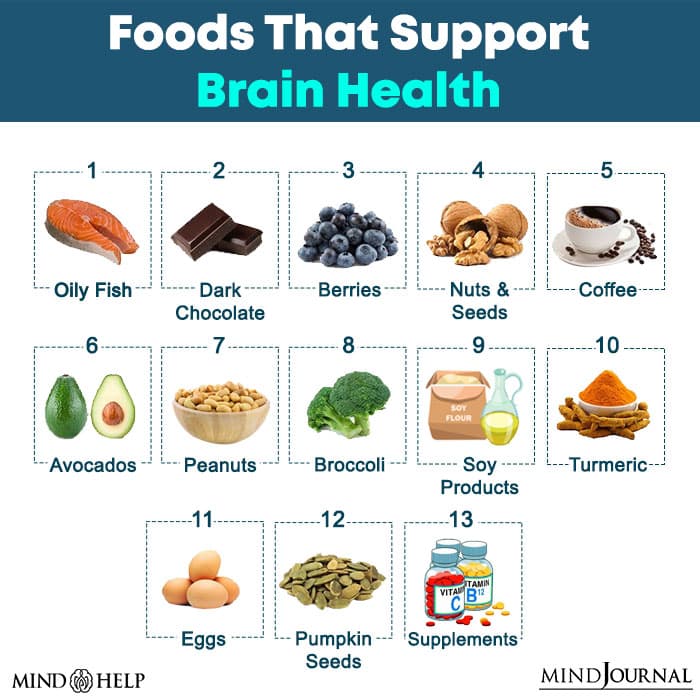
In addition to specific nutrients, the overall quality of our diet can also affect our mood. A diet high in processed and fast foods has been linked to an increased risk of depressive and anxiety symptoms along with other mental health issues.
Whereas a diet high in whole foods, such as fruits, vegetables, and whole grains, has been linked to a reduced risk.
We are what we eat
Eating good and nutritious food is not just crucial for our survival but also for our happiness. Following a healthy diet and avoiding junk food can undoubtedly boost your mental health and mood.
However, it is not necessary for you to make any sudden and drastic changes to your diet right away as you can do this gradually and over time.
Start by avoiding sugary and fatty fast foods and slowly replace them with home-cooked meals that include the foods mentioned above. You should also note that it may take some time for you to feel the effects of eating energy and mood-boosting foods.
However, it’s important to note that while diet can be an important factor in maintaining good mental health, it’s not a substitute for professional treatment if you’re experiencing mental health issues.
If you’re struggling with your mental health, it’s always best to seek the help of a qualified mental health professional.
Related: 4 Tips For Better Mental Health Through Nutrition
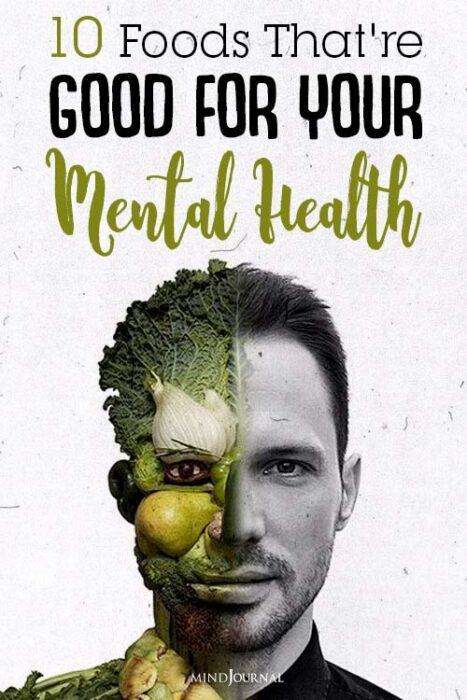
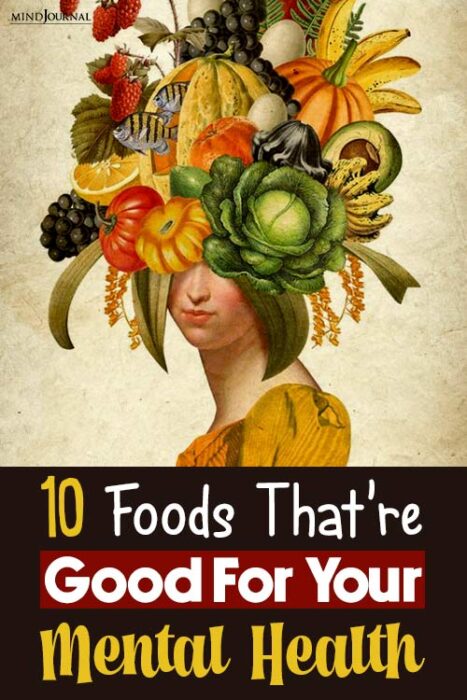
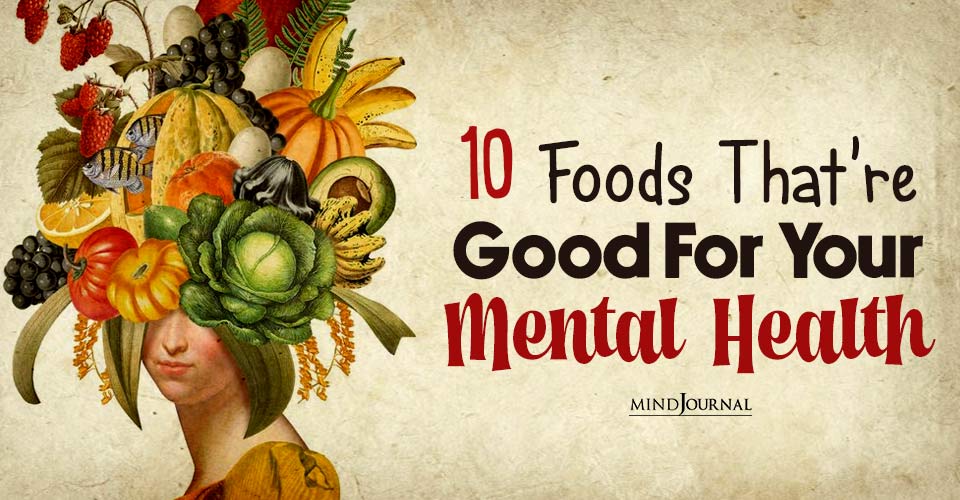









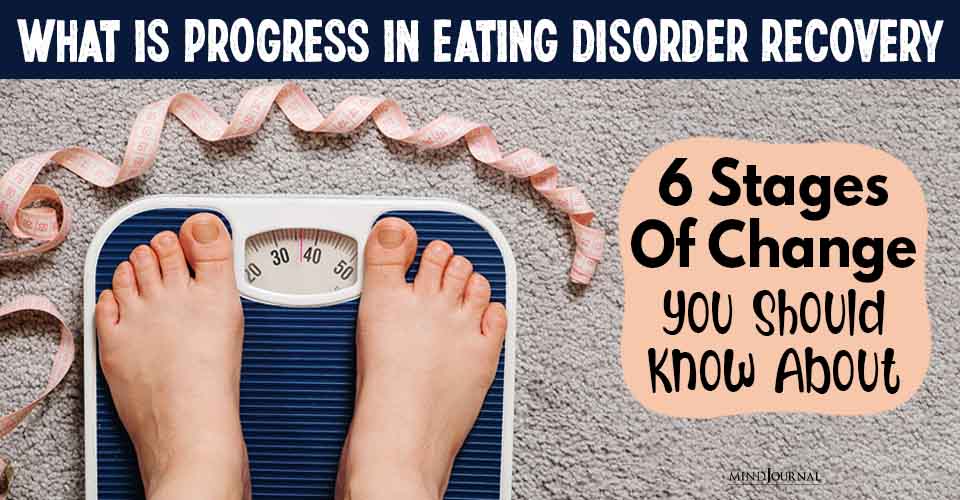

Leave a Reply
You must be logged in to post a comment.